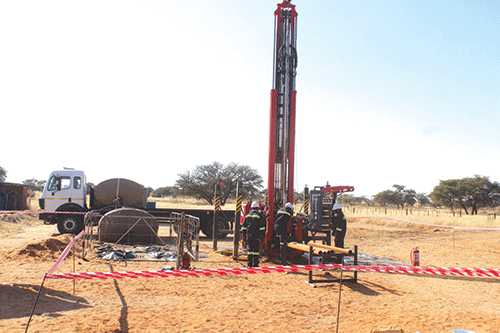The Stampriet Aquifer Uranium Mining Committee is continuing to advocate for the interests of the local communities in the Omaheke region.
The committee is worried that proposed uranium extraction techniques may irreversibly damage an underground water resource that is the only reliable freshwater in the area.
Last week, they penned an open letter to Cabinet and Parliament’s various Standing Committees, regional governors, councillors, traditional authorities and the general public.
In the letter, the committee warned of impending danger to the quality of drinking water in the Stampriet Artesian Aquifer Basin, which is under immediate threat because uranium exploration permits currently encompass 53% of the basin, or 3.3 million hectares.
“Analyses of water from boreholes in the Stampriet Artesian Basin show that the water outside the uranium ore body is safe to drink. Recently, uranium has been discovered in the main underground, artesian aquifer of the Stampriet Artesian Basin,” reads the letter.
They further stated that the situation changes dramatically if the uranium is to be mined. Such mining, called in-situ-leaching, involves forcing sulphuric acid and other chemicals through boreholes into the uranium ore body located in the drinking-water aquifer, dissolving the uranium into the water, and pumping it out again to recover the uranium.
However, Uranium One, the Russian parent company of a local subsidiary exploring the area, remained adamant the planned uranium mining poses no threat to the underground water resource.
The committee added that the Stampriet Artesian Basin extends into Botswana and South Africa, where the same aquifers are pumped for drinking water.
“Pollution of the water in these neighbouring countries due to in-situ-leach mining in Namibia could lead to international litigation and huge compensatory expenses for the Namibian government,” the committee cautioned.
Meanwhile, ministry of agriculture, water and land reform spokesperson Jona Musheko recently told this publication that a report sanctioned by the ministerial committee is being compiled by all affected government agencies. He noted that the necessary steps will be taken once the report is complete.


